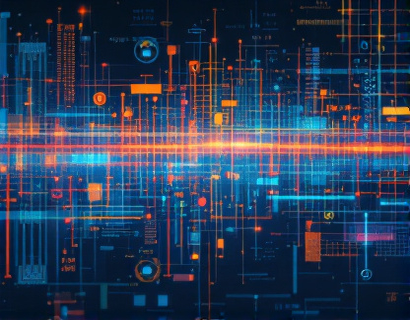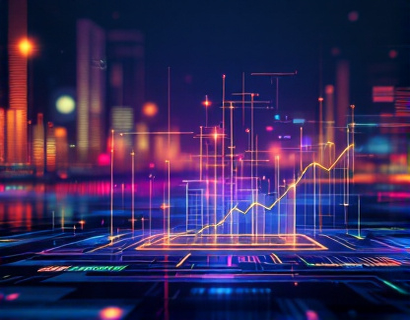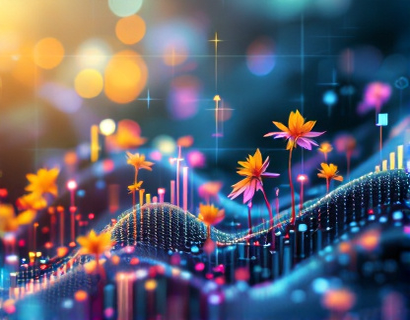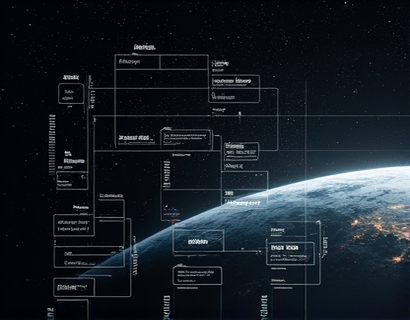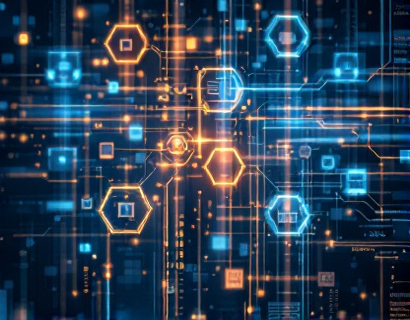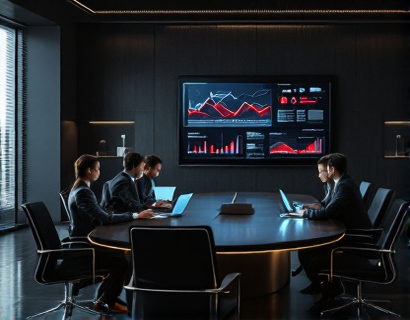Decentralized DAO Management: Revolutionizing Governance with Advanced Analytics and Collaboration Tools
In the rapidly evolving landscape of decentralized finance and autonomous organizations, the management of Decentralized Autonomous Organizations (DAOs) has become a critical area of focus. Traditional governance models are being transformed by innovative software solutions that leverage advanced analytics and collaboration tools. This shift aims to enhance transparency, efficiency, and decision-making within DAOs, enabling them to thrive in a decentralized ecosystem. This article delves into the transformative impact of these advanced software solutions on DAO governance, highlighting how they streamline management, provide comprehensive analytics, and foster enhanced collaboration and transparency.
The Need for Advanced DAO Governance Solutions
DAOs operate on blockchain technology, which inherently offers a high level of transparency and security. However, the complexity of managing a decentralized organization, with its numerous stakeholders and smart contracts, requires robust governance tools. Traditional methods of governance often fall short in handling the scale and intricacy of DAOs, leading to inefficiencies, miscommunications, and potential security risks. Advanced software solutions address these challenges by providing a comprehensive framework for governance, ensuring that DAOs can operate smoothly and effectively.
Streamlining Governance with Advanced Software
The introduction of advanced software for DAO management has revolutionized the way governance is handled. These platforms offer a suite of tools designed to simplify complex processes, from proposal management to voting and execution of decisions. By automating routine tasks, administrators can focus on strategic initiatives rather than getting bogged down by administrative duties. This not only increases efficiency but also reduces the potential for human error, ensuring that governance processes are executed accurately and promptly.
One of the key features of these advanced platforms is their ability to integrate seamlessly with blockchain networks. This integration ensures that all governance actions are recorded on the blockchain, providing an immutable and transparent record of decisions. Such transparency is crucial for building trust among stakeholders and maintaining the integrity of the DAO.
Comprehensive Analytics for Informed Decision-Making
Data-driven decision-making is a cornerstone of modern governance, and DAOs are no exception. Advanced analytics tools embedded within governance software provide deep insights into various aspects of the organization, from financial health to community engagement. These analytics enable administrators to make informed decisions based on real-time data, rather than relying on intuition or outdated information.
For instance, financial analytics can track the flow of tokens, identify potential discrepancies, and forecast future financial trends. Community analytics can gauge member participation, sentiment, and engagement levels, helping administrators understand the needs and preferences of the community. These insights are invaluable for crafting policies and initiatives that align with the DAO's goals and the interests of its members.
Enhanced Collaboration Tools
Collaboration is essential in a decentralized environment where stakeholders are geographically dispersed and operate independently. Advanced governance software includes collaboration tools that facilitate communication, coordination, and collective decision-making. These tools include discussion forums, project management boards, and real-time messaging systems, all integrated within a single platform.
Discussion forums allow members to engage in meaningful conversations, share ideas, and provide feedback on proposals. Project management boards help track the progress of various initiatives, assign tasks, and set deadlines, ensuring that projects stay on track. Real-time messaging systems enable quick and efficient communication, reducing the latency often associated with decentralized communication.
These collaboration tools not only streamline workflows but also foster a sense of community and shared purpose among members. By providing a centralized space for interaction, these tools help overcome the challenges of distance and time zones, ensuring that all voices are heard and valued.
Transparency and Trust through Blockchain Integration
Transparency is a fundamental principle of decentralized governance, and blockchain technology plays a pivotal role in achieving this. By integrating with blockchain, governance software ensures that all transactions and decisions are recorded in a tamper-proof ledger. This level of transparency builds trust among stakeholders, as they can verify the authenticity and integrity of governance actions at any time.
Moreover, blockchain integration allows for the creation of smart contracts that automate and enforce governance rules. Smart contracts execute predefined actions when certain conditions are met, eliminating the need for intermediaries and reducing the risk of manipulation. This automation not only speeds up the governance process but also ensures that rules are consistently applied, further enhancing trust and reliability.
User-Friendly Interfaces for Inclusive Governance
To ensure broad participation and inclusivity, advanced governance software must be user-friendly and accessible to all members, regardless of their technical expertise. Intuitive interfaces and comprehensive documentation help users navigate the platform with ease, reducing the learning curve and encouraging active participation.
Features such as multilingual support, responsive design, and mobile compatibility ensure that members can access and engage with the governance process from anywhere. Additionally, tools that simplify complex concepts and provide clear explanations of proposals and decisions help demystify the governance process, making it more approachable for all stakeholders.
Case Studies and Real-World Applications
Several DAOs have successfully implemented advanced governance software, demonstrating the tangible benefits of these solutions. For example, a decentralized finance (DeFi) DAO used a governance platform to streamline the proposal and voting process for a major protocol upgrade. The platform's analytics tools provided insights into community sentiment, helping administrators tailor the upgrade to meet member needs. The result was a smoother implementation and higher member satisfaction.
Another instance is a content creation DAO that utilized collaboration tools to manage a large-scale project involving multiple contributors. The platform's project management features allowed for efficient task assignment and progress tracking, ensuring the project was completed on time and within budget. The real-time communication tools facilitated seamless collaboration, leading to a successful outcome that exceeded initial expectations.
Challenges and Future Directions
While advanced governance software offers numerous benefits, there are challenges that need to be addressed to fully realize its potential. One key challenge is ensuring the security of the platform, as any vulnerability could compromise the integrity of the DAO. Continuous monitoring, regular audits, and robust security protocols are essential to mitigate these risks.
Another challenge is the adoption rate among DAO members. Some stakeholders may be resistant to change or lack the technical skills to use new tools effectively. Education and training programs can help overcome these barriers, fostering a culture of continuous learning and adaptation.
Looking ahead, the future of DAO governance software is promising. Integration with emerging technologies such as artificial intelligence and machine learning can further enhance analytics capabilities, providing even more insightful and predictive insights. Additionally, the development of cross-platform solutions that allow for interoperability between different DAOs can foster a more connected and collaborative decentralized ecosystem.
In conclusion, advanced governance software is transforming the way DAOs are managed, offering a range of benefits that enhance efficiency, transparency, and collaboration. By leveraging these tools, DAOs can make data-driven decisions, foster a sense of community, and achieve sustainable growth in the decentralized landscape.






